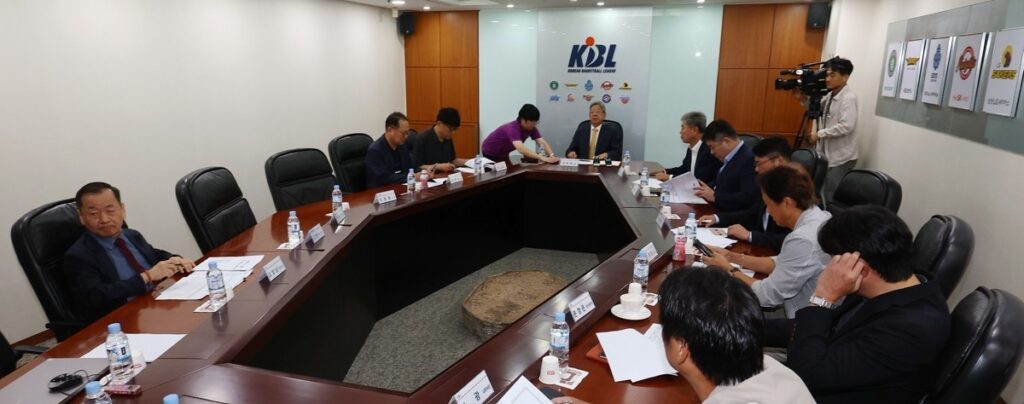The announcement last week of the professional basketball KCC Egis relocating was news that attracted great interest in other professional sports as well.
Cheon Byeong-hyuk’s Baseball World, KCC’s decision to relocate to its hometown is ‘no one else’s business’… If it was recognized as a public good
KCC revealed the background of the relocation, saying that it was difficult
to endure the poor treatment of the hometown where it had stayed for 22 years,
Jeonju City could not hide its expression of disappointment, saying that KCC had made a unilateral decision during the negotiations.
Heo Heo-yeon
KBO President Heo Heo-yeon, who met on the day of the announcement of KCC’s hometown relocation, said, “It is probably a good thing from the perspective of the professional sports world.” 온라인카지노
He added, “It is natural for professional clubs to move to areas that provide good support, such as stadium facilities.”
From the beginning of his inauguration, President Heo Heo-yeon focused his efforts
on establishing relationships between local governments and professional teams.
At the inauguration press conference in March of last year, when the plan to build a new stadium in Daejeon,
which has the most underdeveloped stadium, was delayed, he made a strong statement, saying, “If the infrastructure is not improved,
I will use all my authority as governor,” and “I am even thinking of leaving (my hometown).” did.

Seoul-area Clubs
On the 1st, three Seoul-area clubs, LG Twins, Doosan Bears, and Kiwoom Heroes, held a meeting with members of the Culture, Sports and Tourism Committee of the Seoul City Council.
At this meeting, the three clubs reportedly requested support from the Seoul City Council to improve the club’s revenue structure,
including baseball stadium usage fees and advertising rights.
So far, the most uncooperative region among local governments related to professional baseball was actually the Seoul Metropolitan Government.
The city of Seoul received approximately KRW 12.7 billion, including KRW 8.2 billion, which is the annual appraisal amount,
KRW 4.5 billion, which is 50% of third-party usage fees,
through distribution of Jamsil Stadium’s advertising fee income over the three years from 2020 to 2022.
On the other hand, LG and Doosan, the operators of the Seoul club,
each took only 2.25 billion won, which is 25% of the remaining 50% of the third-party usage fee divided in half.
Seoul Metropolitan Government
Fortunately, the Seoul Metropolitan Government adjusted the distribution of advertising fee income in January,
adjusting the distribution method of third-party usage fees from the previous ‘50%-25%-25%’ to an equal 33% division.
However, considering that most other local clubs naturally have advertising rights
when signing stadium rental contracts, the positions of LG and Doosan still seem disappointing.
A side representing the city of Seoul, which, unlike other local governments,
is stingy with professional teams, also claims, “If we are not careful, we may be misunderstood as giving preferential treatment to conglomerates.”
Professional Baseball
However, if we approach professional baseball as a public good rather than simply dismissing it as a sport played only in stadiums,
much more active policies can be developed.
It would be good to acknowledge that professional sports not only contribute to the public interest,
such as providing citizens with healthy leisure time and revitalizing the local economy, but also become a source of great pride for citizens.
The New York Yankees, the most popular team in American professional baseball’s Major League Baseball (MLB),
considered moving their home base to the nearby state of New Jersey in the early 2000s when New York City showed a lukewarm attitude toward building a new stadium.
Embarrassed, New York City invested an astronomical amount of $1.5 billion (approximately 1.98 trillion won) to build a new Yankee Stadium as high as a luxury hotel in 2009.
Even if it is not an extreme situation like this, it seems quite possible for teams and local governments to co exist as long as there is an awareness that professional sports are public goods.